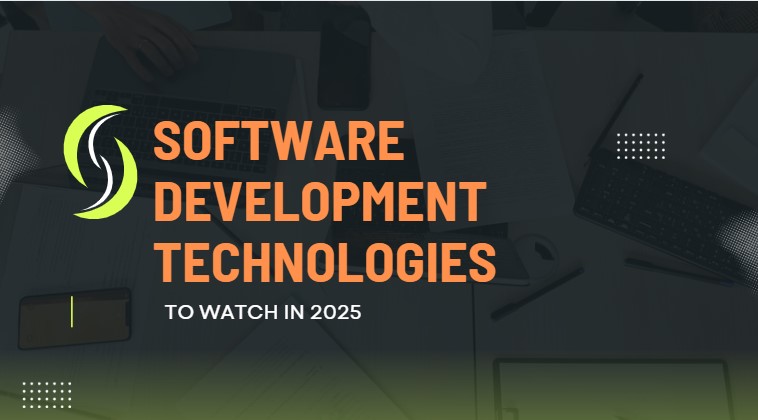Software development continues to evolve at a rapid pace, with new technologies emerging to shape the future of the industry. As programming languages, frameworks, and platforms rise and fall in popularity, staying ahead of the curve is important for developers and tech leaders alike.
A recent report by Pluralsight highlights the most in-demand software development technologies for 2025. Mastering these technologies can open doors to high-paying jobs and ensure career longevity in an increasingly competitive field.
In this article, we explore the top eight software development technologies that are set to dominate in 2025 and why they matter for developers, businesses, and tech leaders.
>>>>10 Best Cities for Software Engineers
The Most Popular Software Development Technologies in 2025
1. AI Agents and LangChain
Artificial Intelligence (AI) agents are transforming how software operates, automating tasks, and optimizing processes. AI-powered software development tools and frameworks are now indispensable in fields like automation, chatbots, and intelligent search engines.
LangChain, a powerful framework for building AI applications, enables developers to create, manage, and scale AI agents efficiently. This framework is critical for businesses leveraging AI for automation, customer service, and data analysis.
2. Retrieval-Augmented Generation (RAG) and Agentic RAG
Retrieval-augmented generation (RAG) combines large language models (LLMs) with external knowledge retrieval, improving AI-generated responses and reducing hallucination errors.
Agentic RAG takes this a step further by enabling AI agents to interact with structured data sources, enhancing decision-making processes and enabling the development of more autonomous systems.
Organizations that invest in RAG-based AI solutions will gain a competitive edge, making expertise in this field highly valuable for developers and AI specialists.
>>>>Security and Office Applications Softwares
3. Python – The Undisputed Leader
Python remains the most popular programming language worldwide, thanks to its versatility and dominance in data science, machine learning, and automation. According to the TIOBE Programming Community Index, Python consistently ranks at the top due to its ease of use, extensive libraries, and strong community support.
Python is particularly important for AI and machine learning, making it a must-learn language for developers who want to future-proof their careers.
4. Cloud Computing: AWS and Microsoft Azure
As businesses increasingly rely on cloud infrastructure, proficiency in cloud platforms like Amazon Web Services (AWS) and Microsoft Azure is essential.
Multi-cloud environments are becoming the norm, with organizations leveraging different cloud services for enhanced flexibility, security, and cost-effectiveness. Developers and IT professionals with expertise in AWS and Azure can secure high-paying roles in cloud engineering, DevOps, and cloud security.
5. Kubernetes and Docker – The Backbone of Modern DevOps
Containerization and orchestration have revolutionized software deployment and scalability. Kubernetes and Docker continue to lead this transformation by enabling seamless management of containerized applications across different environments.
Companies looking to improve efficiency, scalability, and reliability are increasingly adopting Kubernetes for automated deployment and Docker for streamlined application development. DevOps engineers and cloud-native developers proficient in these tools will be in high demand.
6. Frontend Frameworks: Angular, React, and Blazor
Modern web development is driven by powerful frontend frameworks that enhance user experience and performance. Angular, React, and Blazor remain at the forefront of frontend development:
- React is known for its flexibility and is widely used in dynamic web applications.
- Angular is favored for its robust architecture and enterprise-level applications.
- Blazor, a rising star, allows .NET developers to build interactive web applications using C# instead of JavaScript.
Mastering these frameworks will ensure developers stay competitive in the evolving web development landscape.
7. SQL – The Foundation of Data Management
SQL remains a crucial skill for software developers and data professionals. With the ever-growing need for data storage, retrieval, and analysis, SQL skills are essential for managing structured databases efficiently.
SQL databases continue to power applications across various industries, making SQL expertise highly relevant for backend developers, data analysts, and AI engineers alike.
8. Linux – The Developer’s Operating System
Linux remains a fundamental technology in software development, especially for backend systems, cloud computing, and cybersecurity. Many enterprise applications and cloud platforms run on Linux, making it a must-know operating system for developers, DevOps engineers, and IT administrators.
With its open-source nature and flexibility, Linux offers a stable and secure environment for building and deploying software applications.
Key Takeaways for Tech Leaders
1. AI and Automation Will Dominate
The rise of AI agents, LangChain, and RAG-based models highlights the growing importance of automation in software development. Companies should invest in AI-driven solutions to improve efficiency and innovation.
2. Cloud Expertise is a Must-Have
Organizations are increasingly adopting multi-cloud strategies with AWS and Azure at the forefront. IT professionals and developers should focus on cloud skills to stay relevant in a cloud-first world.
3. Developers Need a Versatile Skill Set
The demand for full-stack development skills continues to rise. Developers who can work across frontend (React, Angular, Blazor), backend (SQL, Python), and cloud environments will have a competitive edge.
4. Cybersecurity and Reliability Are Top Priorities
With software becoming more complex, security and reliability are critical. Kubernetes, Docker, and Linux provide robust infrastructure for secure and scalable application development.
5. Continuous Learning is Essential
Software development is an ever-changing field, and professionals must stay updated on emerging technologies to remain competitive in the job market.
Conclusion
As we move into 2025, the software development industry wll continue evolving, driven by AI, cloud computing, and modern development frameworks. By mastering these technologies, developers and tech leaders can ensure they remain at the forefront of innovation.
Investing in continuous learning and staying ahead of industry trends will be the key to success in this fast-paced field. Whether you’re a developer looking to upskill or a business leader aiming to build a competitive team, these top technologies will shape the future of software development in 2025 and beyond.
